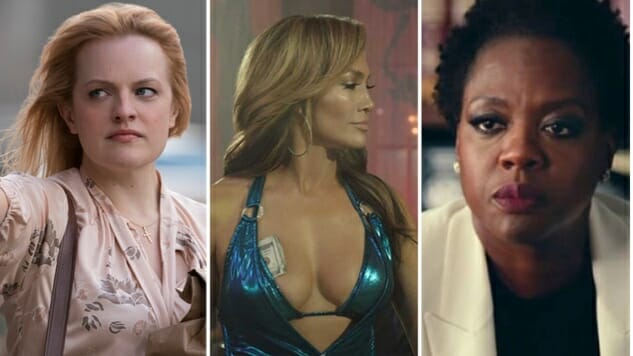From The Kitchen to The Hustle: Film’s Women-Led Crime Wave

Note: Beware of spoilers for recent movies that include Hustlers, The Kitchen and Widows.

Sometimes there’s no other choice, and a good man must break bad. Michael Corleone resists his father’s criminal empire, but when it comes down to it, he kills for his family without hesitation or regret—the same way his own father did for him. Dying of cancer, Walter White can follow the rules and bequeath his family a mountain of debt, or he can become a ruthless drug lord. It’s almost always men at the center of these stories, reinforcing a kind of idea that expressing love is totally okay just as long as it involves having your underworld rivals killed.
The Godfather and Breaking Bad were always clear on who pays the price for their anti-heroes’ pride: Kaye on the wrong side of the door, or Skyler left holding a bag that includes money laundering and the murder of federal agents. It feels natural then, that a lot of the most recent crime movies have decided to focus on the perspective of women driven to crime by the very thing audiences pay good money to see: the crimes of the men in their lives, whether they’re bank robbers, robber barons, or small-time crooks.

The refrain of mob and heist movie anti-heroes is always “I did it for you,” so it’s no surprise Widows co-writer Gillian Flynn—author of Gone Girl—takes that very idea and dedicates most of a movie to turning it on its head. When her husband and his crew of robbers are killed during a job gone wrong, Veronica (Viola Davis) finds herself in debt to a Chicago crime boss who demands she cough up the $2 million her husband stole.
She also comes into possession of a notebook containing intricately detailed schematics for her late husband’s next job—one that will pay off her debtors and leave her riding high, provided she can get together a crew to help pull it off. She turns to the other women whose husbands died during the job, and who are also staring down the consequences their husbands aren’t alive to suffer.
The Kitchen puts Kathy (Melissa McCarthy), Ruby (Tiffany Haddish) and Claire (Elisabeth Moss) in a similar impossible bind when their husbands, all underbosses in a Hell’s Kitchen mob outfit, get arrested and thrown in jail during another job gone wrong. Begging for any work in the crime family, they discover that the menfolk haven’t even been providing any of the protection to local storefronts that is the whole reason locals are supposed to tolerate organized crime.
By the time they’re done cleaning up the mess they’ve been handed, they’re mafia queens ordering (and sometimes performing) hits and commanding respect among rival criminal organizations.

And then there are the stories of crooks who get into it out of a spirit of rebellion, or because of a long-simmering urge to get back at those who have kept them down. It’s telling that the two examples I can think of recently both have the word “hustle” in the title: The Anne Hathaway and Rebel Wilson buddy comedy The Hustle and Hustlers, starring a seven-foot-tall Jennifer Lopez. That’s the justification in both cases: Crime is about ambition, and in both movies, the women who dive into a life of crime are doing so because the alternative is to live off table scraps in a man’s world.
-

-

-

-

-

-

-

-

-

-

-

-

-

-

-

-

-

-

-

-

-

-

-

-

-

-

-

-

-

-

-

-

-

-

-

-

-

-

-

-









































